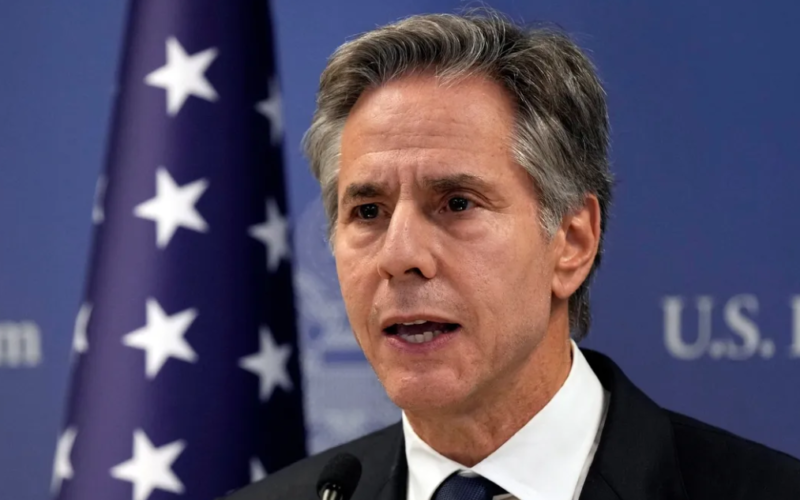U.S. Secretary of State Antony Blinken has taken steps to address growing dissent within the State Department regarding the Biden administration’s approach to the Israel-Hamas conflict. Amid widespread advocacy for a ceasefire among hundreds of government employees, Blinken has sought to assure staff members that their voices are heard, recognizing the diversity of opinions within the department.
Over the past week, more than 500 individuals who worked on President Biden’s 2020 election campaign penned a letter urging immediate support for a ceasefire in Gaza. Additionally, a vigil held by congressional staffers at the Capitol emphasized the call for a halt to hostilities. The public resignation of a State Department official, opposing continued lethal assistance to Israel, added to the growing dissent.
In response to the internal dissent, Secretary Blinken addressed State Department employees, acknowledging their concerns and emphasizing an open dialogue. While encouraging diverse perspectives, Blinken made it clear that policy adjustments might not necessarily result from disagreements at the working level. The Secretary has actively engaged with individuals from different bureaus to understand their views on the Israel-Hamas conflict.
Reports indicate that at least three cables critical of the administration’s policy have been submitted through the State Department’s “dissent channel.” This internal mechanism allows diplomats to express policy concerns anonymously to the Secretary of State. The dissent channel, established during the Vietnam War, serves as a platform for diplomats to voice their reservations.
During a briefing, Department spokesperson Matthew Miller underscored Blinken’s willingness to receive feedback and encouraged employees to express dissenting opinions. However, Miller clarified that while diverse voices are valued, it does not guarantee a fundamental shift in the Biden administration’s policy on the Israel-Hamas conflict.
Secretary Blinken’s efforts to address internal dissent within the State Department reflect the complex dynamics surrounding the Israel-Hamas conflict. While the administration acknowledges diverse opinions and encourages an open dialogue, it remains to be seen how these expressions of dissent will influence or shape U.S. policy in the ongoing crisis. The interplay between diplomatic channels, employee advocacy, and public discourse underscores the multifaceted nature of addressing contentious international issues within the U.S. government.








